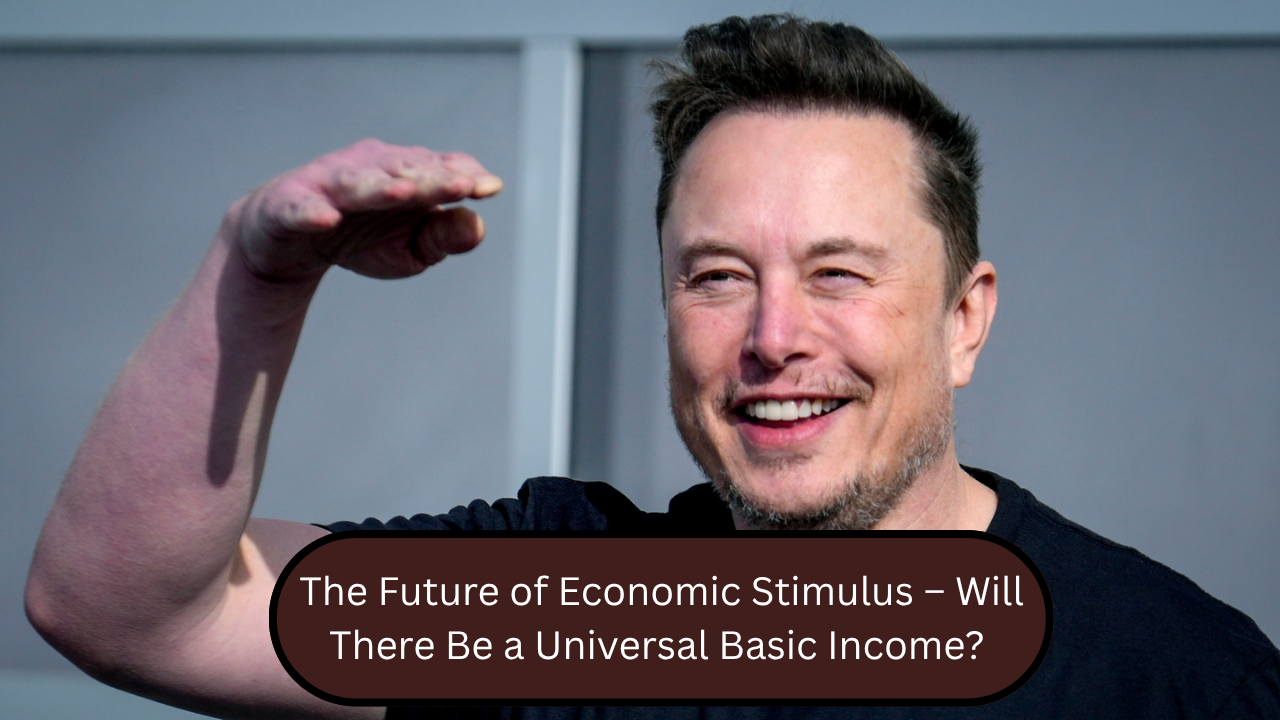In recent years, the idea of giving money directly to people—without any work requirements—has gained attention around the world. This idea is called Universal Basic Income (UBI). It became more popular during the COVID-19 pandemic, when many governments gave out cash to help people during lockdowns. These one-time payments were a form of economic stimulus, used to keep the economy running. But now, many are asking: what if we had a regular, guaranteed income for everyone? Could UBI be the future of economic support? Let’s explore how stimulus works, what UBI is, and whether the world is ready for it.
How Economic Stimulus Works Today
Economic stimulus is used by governments to boost the economy during hard times—like recessions, natural disasters, or pandemics. It usually comes in the form of tax cuts, interest rate reductions, or direct payments to citizens. These tools help people spend more money, which increases demand for goods and services. This, in turn, creates jobs and helps the economy recover.
During the COVID-19 pandemic, countries like the U.S., Canada, and India gave out direct cash transfers to people who lost jobs or income. These payments were temporary, but they helped millions survive. The success of these programs led to a bigger question: what if people received regular income support, even when there’s no crisis?
What Is Universal Basic Income (UBI)?
Universal Basic Income is a policy idea where every citizen receives a fixed amount of money regularly, with no conditions attached. This income is given whether or not the person works, and it is meant to cover basic living expenses like food, shelter, and clothing.
Supporters of UBI believe it can reduce poverty, support mental health, and give people the freedom to choose jobs they enjoy. It can also help workers adapt as automation and artificial intelligence (AI) replace many jobs in the future.
Critics argue that UBI may be too expensive for governments and could discourage people from working. Some worry that if everyone gets money for free, fewer people will feel the need to work or study hard.
Global Experiments with UBI
Several countries have tested UBI programs on a small scale:
- Finland ran a two-year trial from 2017–2018, giving €560 per month to 2,000 unemployed people. Results showed improved well-being and mental health, but little change in employment levels.
- United States cities like Stockton, California, gave $500 monthly to selected residents for over a year. Many used the money for rent, food, and job training.
- India has discussed UBI as a way to reduce inequality, especially in rural areas. Some state-level experiments have shown positive results in reducing poverty.
These tests suggest that people do not stop working when they get UBI, but instead use the money to make better life decisions.
Universal Basic Income is no longer a far-off idea. As automation changes the job market and economic crises become more common, the need for a strong safety net is growing. While UBI is not a perfect solution, it offers a new way to think about fairness, work, and the role of government. Whether or not UBI becomes a reality in every country, the conversation around it is already shaping the future of economic policy. With careful planning, data, and political will, UBI could one day become a regular part of our lives—just like public schools or healthcare.
Table: UBI Pilot Programs Around the World
| Country | Amount Given | Duration | Key Results |
|---|---|---|---|
| Finland | €560/month | 2 years (2017–18) | Better well-being, same job levels |
| USA (Stockton) | $500/month | 1 year (2019–20) | Improved mental health, job security |
| Kenya | $22/month | 12 years (ongoing) | More education, food security |
| India (MP state) | ₹500/month | 18 months | Better nutrition, savings |
| Canada (Ontario) | C$1,400/month | 1.5 years | Canceled early, but showed strong support |
FAQ’s:
Q1. What is the main goal of Universal Basic Income?
A1. The main goal of UBI is to provide financial security to everyone, reduce poverty, and give people more freedom in choosing how they live and work.
Q2. Will people stop working if they receive UBI?
A2. Studies show most people continue working. In fact, many use the money to find better jobs, start small businesses, or get job training.
Q3. Is UBI affordable for all countries?
A3. UBI can be expensive, but it depends on how it’s designed. Some experts suggest replacing other welfare programs or increasing taxes on the wealthy to fund it.
Q4. Is UBI already being used anywhere?
A4. No country has full UBI yet, but several have run test programs. Some cities and states have offered guaranteed income to small groups of people.
